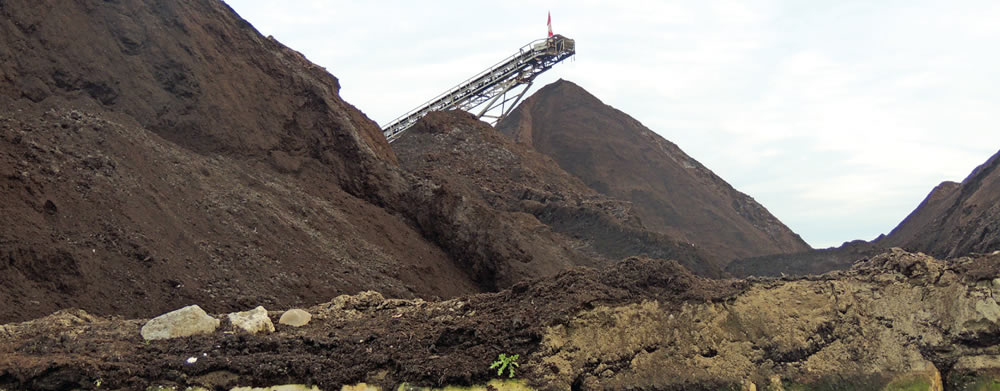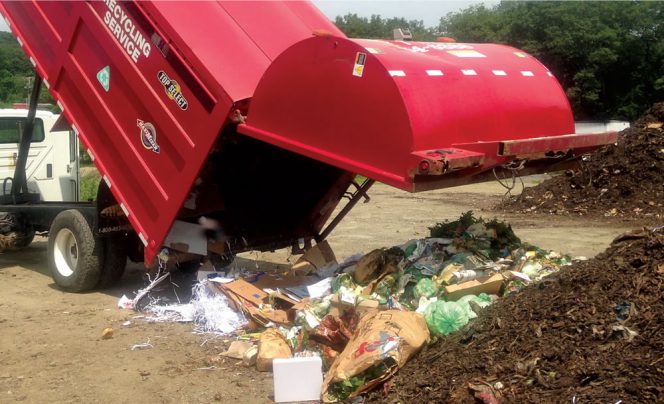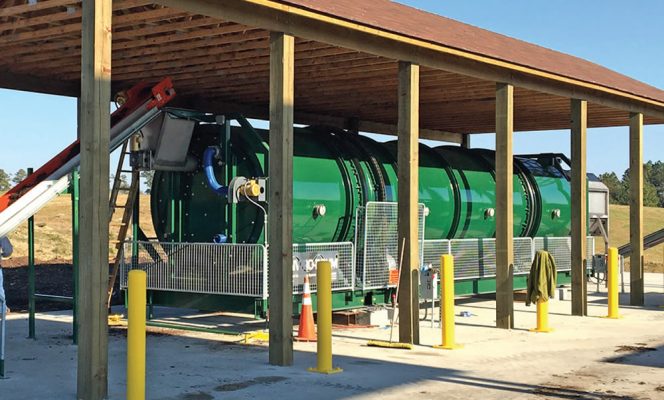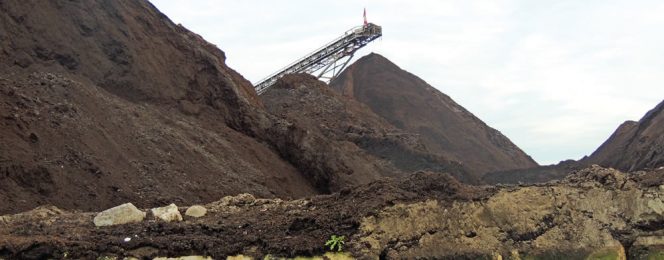BioCycle September 2018
Seattle, Washington: Compostable Plastic Straws And Utensils Update
Seattle Public Utilities (SPU) issued an update on the status of SPU’s July 1st requirements regarding plastic straws and plastic utensils. “All Food Service Businesses in Seattle must now use only compostable straws and utensils,” stated the bulletin. “This is part of the original 2008 ordinance requiring that all one-time-use packaging and serviceware be compostable or recyclable. SPU continues to engage with the packaging industry and the community of food service businesses to ensure that the requirements can be adhered to with currently available packaging and serviceware products.”
Two new temporary exemptions (for one year, starting 7/1/18) are related to these requirements. They do not apply to:
• Disposable flexible plastic drinking straws when needed by customers due to medical or physical conditions and for whom flexible compostable paper straws are unsuitable. Otherwise, straws must be compostable or designed to be reusable.
• Disposable long-handled thick plastic soda spoons when required and used for thick drinks and identified as non-compostable by the food-service business to its customers.
“SPU also encourages food service businesses to use compostable packaging whenever possible, to provide compostable straws and utensils only upon request, and to utilize dispensers when providing them to customers,” notes the update. “SPU will focus this year on continuing outreach and assistance to businesses to help them come into compliance with the new straw and utensil requirements, rather than enforcement.”
Brattleboro, Vermont: Organics Contribute To Residential Recycling Performance
A recent analysis of Brattleboro’s residential curbside trash, recycling, and organics collection program has determined that 64 percent of its solid waste stream is being diverted from landfill disposal, exceeding the state of Vermont’s goal of 50 percent diversion by 2020. The town’s curbside collection program services single family residences, and multifamily residences up to 4 units. Patrick Moreland, Assistant Town Manager, who oversees Brattleboro’s solid waste program, credits collection of food scraps and other organics to exceeding the goal. In FY 2018, 930 tons of trash, 1,080 tons of recyclable materials, and 605 tons of organics were collected for a total of 2,615 tons of materials. The analysis showed recyclable materials contributed 41 percent of the diversion; 23 percent is attributed to organics. The actual landfill diversion rate is probably 2 percent less due to contaminants in the recyclables and organics.In addition to exceeding the state’s recycling goal, the program has saved the Town of Brattleboro approximately $24,200 in FY18 because of the composting program. The Town pays $105/ton for trash disposal, but only $65/ton for organics delivered to the Windham Solid Waste Management District’s composting facility in Brattleboro.
Springfield, Illinois: New Law Aims To Increase Use Of Compost In Illinois
House Bill 4790, Compost Soil Construction, has been passed by the Illinois General Assembly and signed into law by the Governor. The new law contains two main provisions. The first requires any State agency undertaking a landscaping project using off-site soil to request a bid for compost. The State agency shall incorporate compost-amended soil into a landscaping project if the cost of using compost-amended soil is equal to or less than the cost of using other new or offsite soil.
The second provision requires the Illinois Department of Transportation to conduct two pilot road construction projects in CY2019 using compost and report its findings to the Illinois General Assembly within one year of completion. The report must include the immediate costs of the projects, long-term operational cost savings, and advantages and disadvantages of using compost-amended soil.
“We are aware that the Illinois Department of Transportation has used compost on road projects in the past, and this law will give the State an opportunity to study its use and determine if it is cost-effective and how it performs compared to soil alone,” said Illinois Food Scrap Coalition Chairman Jennifer Jarland. “The Coalition is thrilled to see Illinois pass this legislation and believes it will significantly increase the use of compost on future State projects.” One additional requirement of the law is that the compost used at state projects must be of high quality and meet the requirements of the U.S. Composting Council’s Seal of Testing Assurance (STA) certification, or a similarly recognized testing program.
New Hanover County, North Carolina: In-Vessel Food Scraps Composting
New Hanover County installed an in-vessel composter at its landfill, which is processing food waste from residents, businesses and institutions in the county. Residents can bring unpackaged food waste to the county’s facility, or drop it off at the “HazWagon,” a mobile household hazardous waste unit stationed at three locations each week. Drop off is free of charge. They can also subscribe to the Wilmington Compost Company’s collection service, which also is available to commercial establishments. Accepted materials include all food waste, pet food and any bags, plates, flatware, straws or cups marked “BPI Certified Compostable.”The county installed the DTE Enviro Drum in-vessel composting unit. Food waste, yard trimmings and ground construction debris are composted in the drum. Curing takes place in concrete bays. Finished compost is being used at New Hanover County Parks and Gardens, including Airlie Gardens and the Arboretum. The compost is not available for purchase or private use.
Durham, North Carolina: From Yard Trimmings To Multiple Organics
The City of Durham (pop. ~263,000) has a Type 1 composting site, permitted to process only yard trimmings. About 15,000 to 20,000 tons/year are being composted. The site is operated under contract by Atlas Organics, and uses the Extended Aerated Static Pile (EASP) system. “We are seeking approval for Type 4 site that will process an additional 15,000 to 20,000 tons/year of yard trimmings, food waste and biosolids using the EASP system,” explained Wayne Fenton, Durham’s Assistant Director, Solid Waste Management, at the Composting Collaborative’s Summer Dialogue at Wastecon in August. “We plan to launch with preconsumer food waste from grocery stores and select restaurants.”
Durham provides a subscription service for yard trimmings collection in curbside carts; about 22,000 customers receive the service. “Our plan is to expand to collection of food waste in the yard trimmings cart initially, and then to collection of food from non-yard trimmings customer households,” added Fenton. At that point, all food waste types will be accepted, along with BPI certified compostable products. “We will need to educate residents on which products in the marketplace are truly “biodegradable,” he said.
Richmond, British Columbia: Composting Operations To Wind Down
Citing regulatory uncertainties and costs, Harvest Power has announced it will wind down operations at its aerobic composting operation in Richmond, a suburban city near Vancouver, British Columbia. The Harvest, Fraser Richmond Organics facility, which has been beset by odor complaints from nearby residential areas, will likely continue to receive feedstock until next April, when, under its current air quality management permit, it was supposed to have installed a new Covered Aerated Static Pile (CASP) system, says spokesperson Stephen Bruyneel. The company has decided against making that significant capital investment. Beyond that date, it will continue to sell compost until the supply runs out. “Harvest plans to continue its operations in accordance with the existing permit and to work with its customers to facilitate an orderly transition,” the Massachusetts-based company said in a written statement announcing the decision.
The facility is operating under a four-year permit issued in September 2016 by Metro Vancouver, the regional government for an area of southwestern British Columbia that includes 23 local authorities. The permit requires steps to reduce odors. Key among them was installation of the new CASP system. Harvest Power will not disclose details but says the decision to close resulted from uncertainties over the permit requirements and timing, and the impact of these uncertainties on costs. “It’s a business decision,” Bruyneel explains. “We couldn’t get certainty regarding permits. … We didn’t know what they wanted.” Harvest Power also objected to a requirement that the operation pass what the company considered unscientific “sniff tests,” in which Metro Vancouver staff would use their noses to determine whether odors from the operation were unacceptable.
With these measures, and decisions by some municipalities to take their organic wastes elsewhere, feedstock deliveries had dropped from a peak of about 220,000 tons annually in 2015 and 2016 to only about 110,000 tons/year now. A major source was Metro Vancouver, which banned organics from landfills in 2015 as part of its goal of 80 percent diversion of all wastes by 2020. As a result of these changes, “we have been successful in reducing the number of odor complaints,” Bruyneel notes. But with continuing uncertainty over what will be necessary to meet permit requirements, “we couldn’t justify the investment.” Harvest Power will review whether to reopen the Energy Garden but there is no time frame yet for a decision on that facility, he adds.
Metro Vancouver says Harvest Power’s decision won’t hamper its organics recycling progress since the feedstock can go to any of about another dozen facilities in the region, including the new Surrey Biofuel Facility.
Keene, New Hampshire: Entrepreneurs Launch Composting Initiative
Entrepreneurs Kira and Mark Wadsworth, along with Albert Diemand, have launched a food scraps collection and composting business in Keene, with a unique twist. Known as the Elm City Compost Initiative, customers can get a bucket to set out food scraps, which is collected weekly for $15/month. And the owners of Elm City Compost do not want the fee to stop Keene residents from diverting food scraps. “We want this program to be accessible to everyone,” Kira Wadsworth told The Keene Sentinel. If someone wants to participate but can’t necessarily pay $15/month, the company may be willing to exchange a month of its services for an hour of a customer’s time doing tasks like cleaning out buckets or performing outreach on social media, Wadsworth said. Collected food scraps will be delivered to the Windham Solid Waste Management District’s composting facility in Brattleboro, Vermont, about 20 miles from Keene.













